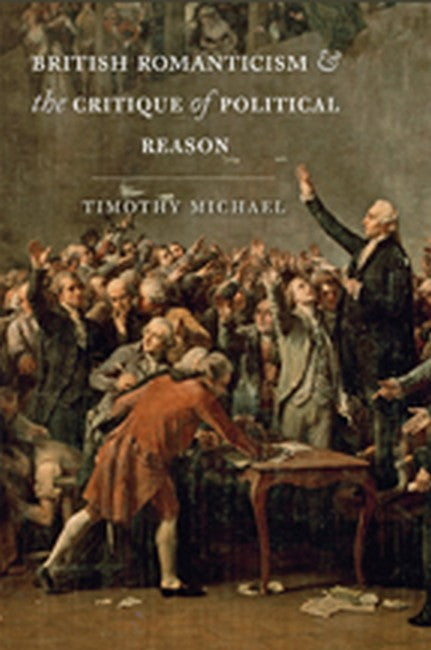Acknowledgments
Introduction
The Discipline of Political Knowledge
Context
Cases of Romanticism
Conceptual Orientations
1. Kant and the Revolutionary Settlement of Early Romanticism
Revolutions, Copernican and French
Prophetic History and Moral Terrorism
Independence from Experience
The Rhetoric of Hurly-Burly Innovation
2. Burke and the Critique of Political Metaphysics
Hypotaxis
Paradox
3. Wollstonecraft and the Vindication of Political Reason
Ratiocinatio
Stale Tropes and Cold Rodomontade
Our Ideas of the Sublime and Beautiful
4. The Government of the Tongue
The Power of Mere Proposition
Constructing a Form of Words
Resisting ""Incroachment""
The Literature of Justice and Justification
5. Coleridge and the Principles of Political Knowledge
Hume and the Highest Problem of Philosophy
Structures of Mind and Government
The Symptom of Empiricism
6. The State of Knowledge
Rational Resistance
The Limits of Experimental Philosophy
Trying French Principles
Poetry and Poetics of the Excursive and Unbound Mind
7. The Dwellers of the Dwelling
Epistemic Hedonism
Tranquil and Troubled Pleasure
Building Social Freedom
The Inner Citadel of the Spirit
8. P.B. Shelley and the Forms of Thought
The Case for Skeptical Idealism
Historical Epistemology
The Atmosphere of Human Thought
Afterword
Notes
Bibliography
Index
Request Academic Copy
Please copy the ISBN for submitting review copy form
Description
""British Romanticism and the Critique of Political Reason will be read in any case with absorbing interest by scholars of an earlier period who may have imagined that the eighteenth century concluded on or about the year 1789.""

